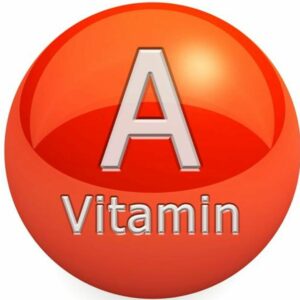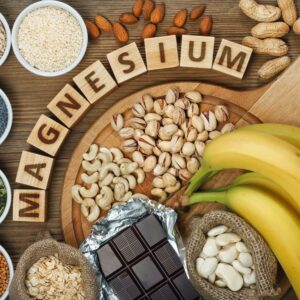Introduction
Omega-3 fatty acids are a group of polyunsaturated fats that play a crucial role in maintaining overall health. While fish oil supplements and fatty fish like salmon are common sources of omega-3s, it’s important to note that vegan sources of these essential nutrients are also readily available. In this comprehensive guide, we will explore the world of vegan omega-3 fatty acids, uncovering their potential advantages, sources, and effects on various aspects of health and well-being.
Understanding Vegan Omega-3 Fatty Acids
Omega-3 fatty acids are essential nutrients, meaning the body cannot produce them on its own and must obtain them from the diet. There are three primary types of omega-3 fatty acids:
- Alpha-linolenic acid (ALA): ALA is a plant-based omega-3 fatty acid found in various vegan sources, such as flaxseeds, chia seeds, and walnuts. The body can convert ALA into two other omega-3s, eicosapentaenoic acid (EPA) and docosahexaenoic acid (DHA), but this conversion is not highly efficient.
- Eicosapentaenoic acid (EPA): EPA is mainly found in marine sources like fish and algae-based supplements. It plays a role in reducing inflammation and supporting heart health.
- Docosahexaenoic acid (DHA): Like EPA, DHA is primarily found in marine sources and algae-based supplements. DHA is essential for brain and eye health, particularly during pregnancy and infancy.
The Potential Benefits of Vegan Omega-3 Fatty Acids
Vegan omega-3 fatty acids offer a wide range of health benefits
- Heart Health: ALA from vegan sources can support heart health by reducing the risk of cardiovascular disease. It can lower levels of triglycerides, improve blood vessel function, and reduce inflammation.
- Brain Health: EPA and DHA, which can be obtained from microalgae supplements, are crucial for brain development and cognitive function. They may help prevent cognitive decline and support mental well-being.
- Eye Health: DHA is an essential component of the retina. Adequate DHA intake supports good vision and may reduce the risk of age-related macular degeneration.
- Inflammation Reduction: Omega-3s, especially EPA, have anti-inflammatory properties and can help reduce symptoms in inflammatory conditions like arthritis and inflammatory bowel disease.
- Skin Health: Omega-3s contribute to healthy skin by improving hydration, reducing dryness, and addressing skin conditions like eczema.
- Immune System Support: Omega-3s can enhance the functioning of the immune system, helping the body defend against infections and diseases.
- Mood and Mental Health: EPA and DHA may have a positive impact on mood and mental health, potentially alleviating symptoms of depression and anxiety.
- Pregnancy and Infant Development: DHA is crucial for fetal brain and eye development during pregnancy. Pregnant and breastfeeding vegan individuals can benefit from algae-based DHA supplements.
- Weight Management: Omega-3s can support weight management by helping to regulate appetite and improve the body’s response to insulin.
Sources of Vegan Omega-3 Fatty Acids
Vegan sources of omega-3 fatty acids include
- Flaxseeds: Flaxseeds and flaxseed oil are rich in ALA. Grind flaxseeds before consuming them to improve absorption.
- Chia Seeds: Chia seeds are another excellent source of ALA. They can be added to smoothies, yogurt, or oatmeal.
- Walnuts: Walnuts contain ALA and can be enjoyed as a snack or added to various dishes.
- Hemp Seeds: Hemp seeds are a good source of ALA and can be used in salads, smoothies, or as a topping for cereal.
- Algae-Based Supplements: EPA and DHA can be obtained from microalgae-based supplements. These supplements provide a vegan-friendly alternative to fish oil capsules.
- Edamame: Edamame, or young soybeans, contain ALA and can be included in various dishes.
Considerations and Precautions
- Conversion Efficiency: The conversion of ALA to EPA and DHA in the body is not very efficient. For optimal brain and heart health, especially during pregnancy, consider incorporating algae-based DHA supplements.
- Balanced Intake: Maintaining a balance between omega-3 and omega-6 fatty acids is essential. Omega-6 fatty acids are also necessary for health but should be consumed in moderation. Avoid excessive intake of oils high in omega-6, such as corn and soybean oils.
- Supplementation: If you have specific dietary restrictions or concerns about your omega-3 intake, consult with a healthcare provider or registered dietitian to determine if omega-3 supplements are appropriate for you.
- Quality Matters: When choosing algae-based supplements, select products from reputable brands to ensure purity and quality.
Conclusion
Vegan omega-3 fatty acids, with their diverse range of benefits, are essential nutrients that play a crucial role in overall health and well-being. From supporting heart health and brain function to reducing inflammation and promoting good skin and eye health, these essential fatty acids are a fundamental part of a balanced vegan diet. It underscores the importance of a well-rounded and nutritious diet for the maintenance of good health. As with any nutrient, it is essential to be mindful of intake levels, potential interactions, and individual needs to ensure the best possible health outcomes. Vegan omega-3 fatty acids are a key player in the intricate web of nutrients that sustain the human body, making them an indispensable part of the journey toward well-being.
- Tropical Bliss: My Tasty Adventure with Just Kratom’s Extra Strength Gummies! - September 26, 2024
- Chill Vibes Only: A Journey through Melo’s THC Beverage Flavors - May 14, 2024
- Kratom Powder By Just Kratom-Powdered Pleasures: A Personal Journey through Just Kratom’s Diverse Collection! - March 13, 2024



